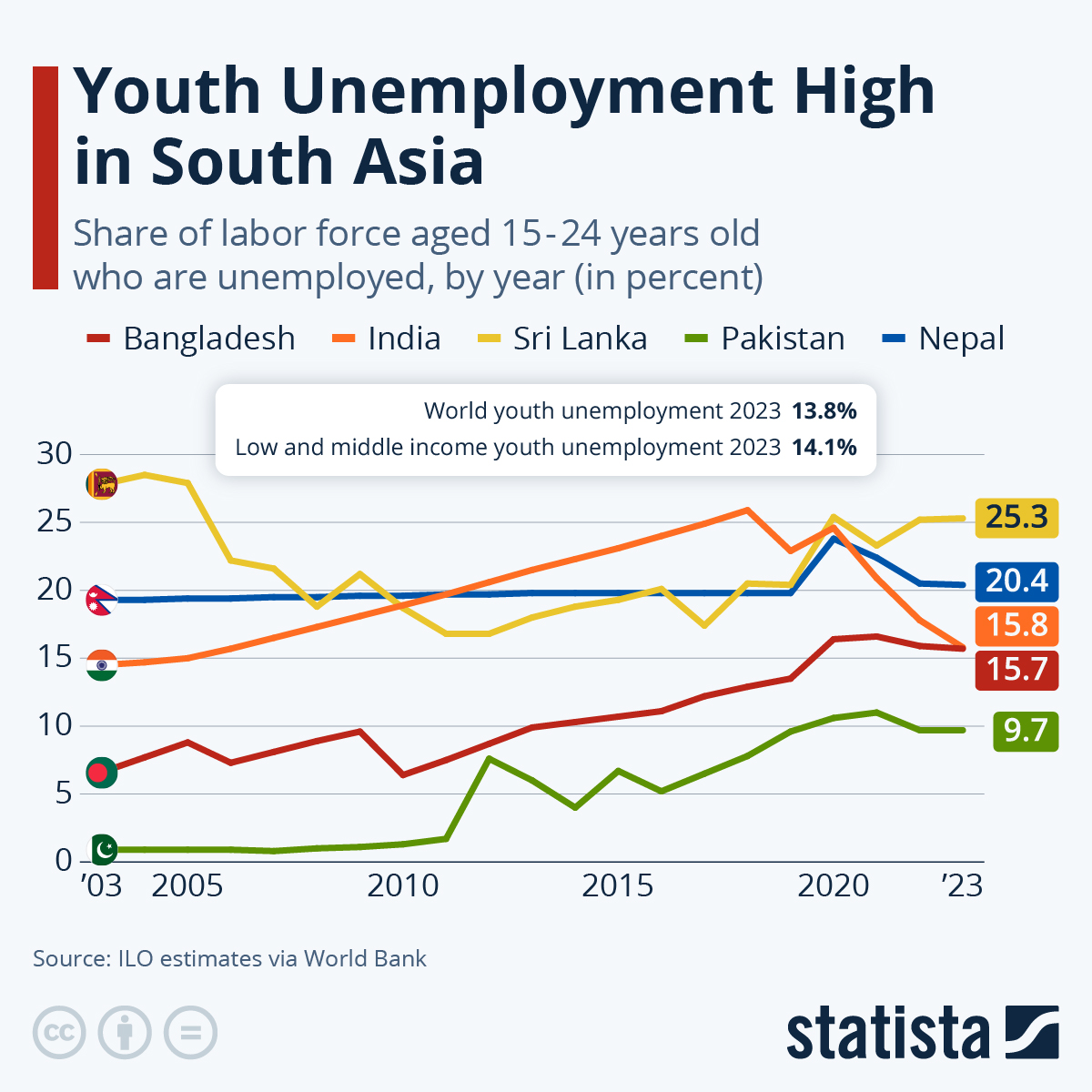Youth unemployment is being cited as one of the core drivers of the unrest in Bangladesh, which led to weeks of protests and Prime Minister Sheikh Hasina stepping down from office.
The following chart, based on ILO data, shows how labor force unemployment for people aged 15-24 years in Bangladesh stood at 15.7 percent in 2023, above the world average for youth unemployment of 13.8 percent and the low and middle income average of 14.1 percent. Youth unemployment is a regional issue, with India having hit a similar level in 2023, while Nepal and Sri Lanka’s rates last year were worse, both surpassing the 20-percent mark. Of this selection of countries, Pakistan fared better in 2023 at around 9.7 percent.
According to a report by the Japan Times, the latest figures indicate that in 2024, roughly 40 percent of Bangladeshi youth are not in education, employment or training, including those no longer looking for work or registered unemployed. The authors write that stagnant job growth in the private sector as well as a cooling economy has made public sector jobs more attractive. Protests started weeks ago over a quota for such civil service jobs which reserved 30 percent of government roles to relatives of veterans of the 1971 war of independence from Pakistan.
While all of the countries' unemployment rates have fallen from a pandemic-induced peak, they have in all five cases risen in the past decade.





















